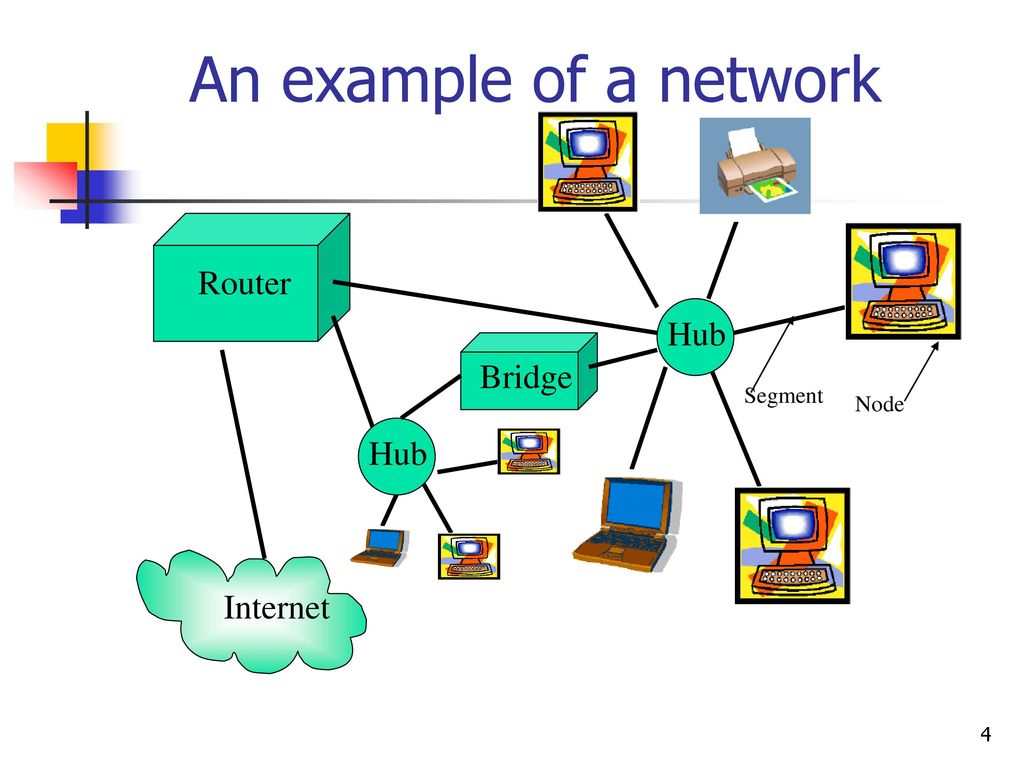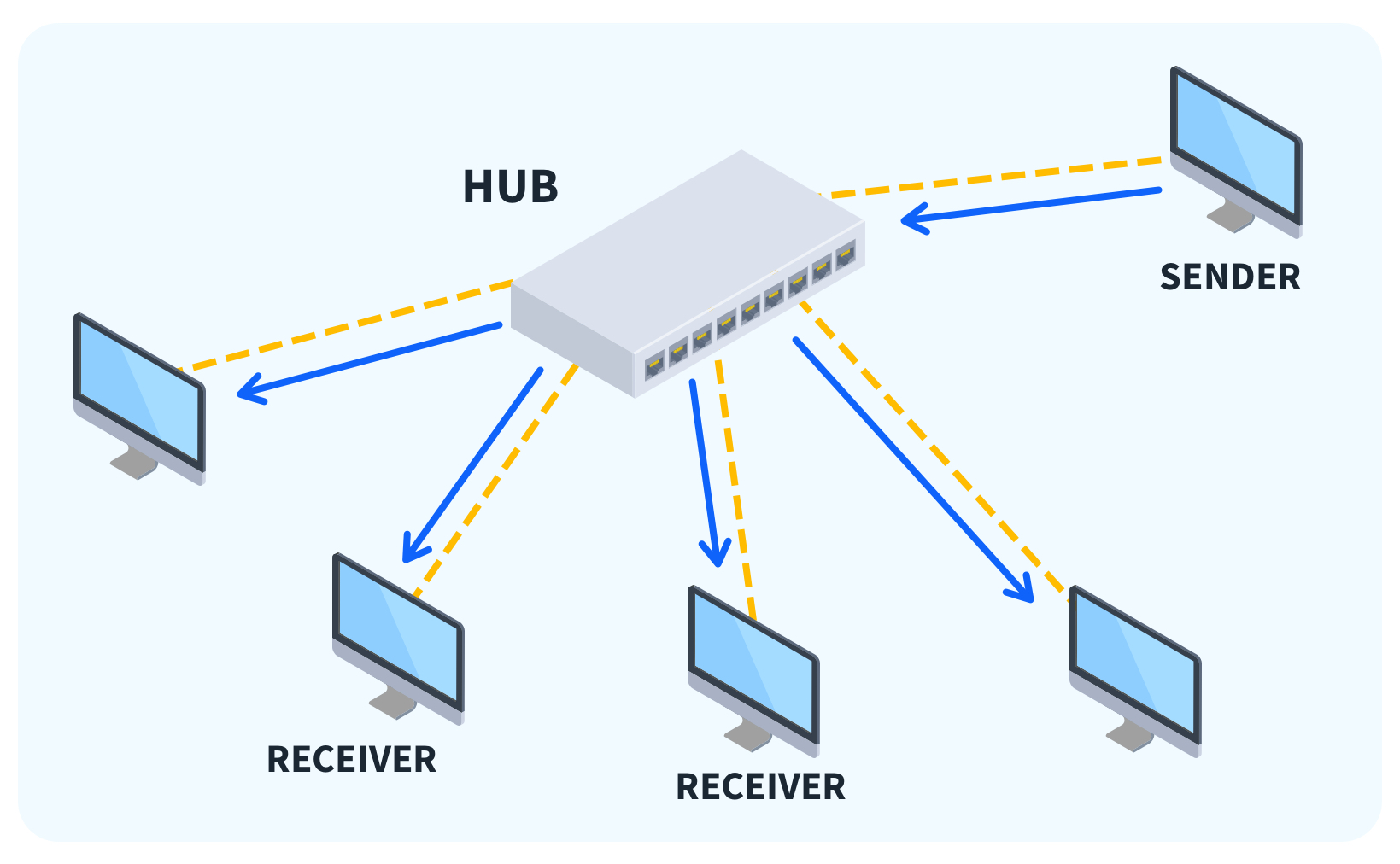Impressive Info About What Is A Node Hub
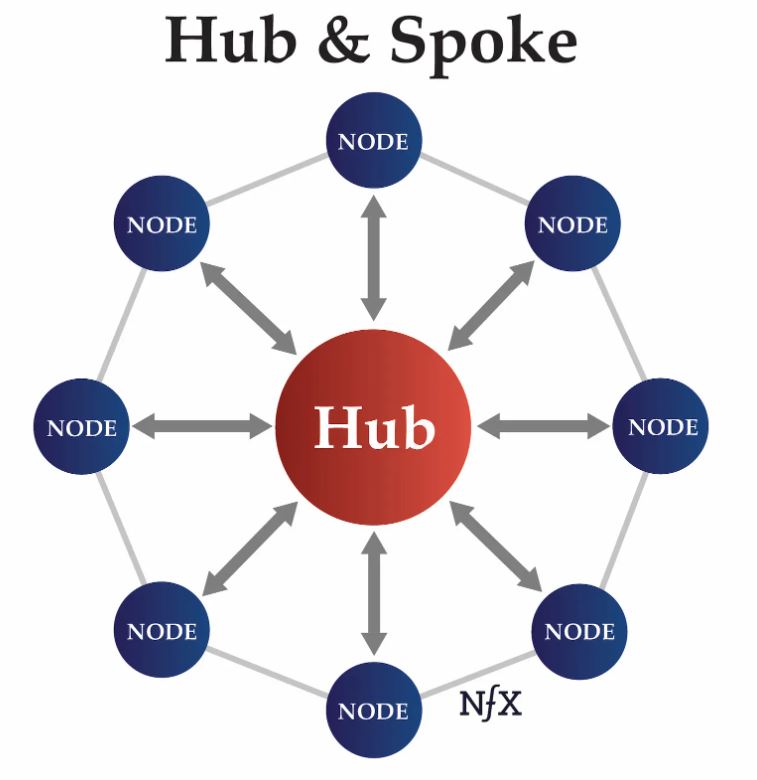
Navigating the Network
1. Unpacking the Basics
Okay, let's break down this whole "node hub" thing, because it sounds a little intimidating at first, doesn't it? Imagine a network, any network — from your home Wi-Fi to the sprawling internet itself. In that network, a "node" is simply a connection point. Think of it like a house on a street, a computer on your home network, or even a server that hosts a website. Each node has a specific address, or ID, and can send and receive information.
These nodes are the workhorses of any network. Theyre constantly interacting, exchanging data, and generally keeping things humming along. Without nodes, a network is just a bunch of wires and protocols going nowhere fast. So, a node is a key participant, actively contributing to the network's function, it's a participant with an IP address.
Now, what makes a good node? Well, that depends on the specific network and what its designed to do. Generally, a reliable node should be stable, secure, and able to handle its assigned workload without choking. Kind of like a good team player — reliable, efficient, and doesnt cause drama.
Think about it like this: each node is like a musician in an orchestra. Some play the flute, others the drums, some are conductors (we'll get to that later), but each is vital to produce a good performance. Just like musicians, each node has a specific function and helps keep the "music" of the network playing smoothly. Without each of them the whole orchestra will be terrible.
2. Connecting the Dots
Alright, weve got the "node" part down. Now for the "hub." A hub, in networking terms, is a central connection point for multiple nodes. Its like a grand central station where lots of different lines converge. All data coming into the hub gets broadcast to all connected nodes. That's the key difference between a hub and a switch or router, which are more intelligent (and often more expensive) about directing traffic only where it needs to go. If the hub is a conductor then the switch or router is a super smart conductor.
Imagine a neighborhood where everyone is connected by a shared telephone line. When someone speaks, everyone on the line hears it, even if the message isnt intended for them. Thats essentially how a hub works. It's simple, but sometimes a bit inefficient, especially in larger networks. When this neighborhood will be larger and larger then people will complain.
Hubs are often used in older network setups or in very small, simple networks where the traffic volume is low. Theyre generally inexpensive, which is a plus, but their "broadcast everything" approach can lead to network congestion and security concerns. Because everyone hears everything, theres a higher chance of eavesdropping or collisions of data. So while they're cheap, they're not exactly the Ferrari of network solutions.
Think of a hub as the town crier, shouting announcements for everyone to hear. In a small village, this works fine, but in a bustling city, it's a recipe for chaos. Modern networks often favor switches and routers, which can direct messages more efficiently and securely, leading to much better network performance and reducing all the fuss.
Why Would I Even Need a Node Hub?
3. Small Networks, Tight Budgets
So, if hubs are a bit, shall we say, old-school, why would anyone still use them? Well, cost is the primary factor. Hubs are significantly cheaper than switches or routers. For a very small home network or a temporary setup where performance isnt critical, a hub might suffice. Think of it like using a rotary phone when everyone else has a smartphone; it gets the job done, but it's not exactly cutting-edge.
Another scenario is for network monitoring or testing. Because a hub broadcasts all traffic, it makes it easy to capture and analyze network data. This can be useful for troubleshooting network issues or for security auditing. It's like having a built-in eavesdropping device (for good, not evil, purposes, of course!).
However, it's important to weigh the cost savings against the performance limitations. In larger networks, the broadcast nature of hubs can quickly lead to congestion and slow down the entire network. Also, the lack of security features can be a concern, especially if you're handling sensitive data.
While hubs can work in the scenario above, they are likely not the best option to use. A switch would be much better in most scenarios. Hubs are simply outdated at the time of this writing. However, it is still useful to understand how they work, as many enterprise solutions are based on top of old architectures.
4. DIY Networking Adventures
Beyond basic connectivity, hubs can sometimes find a niche in DIY networking projects or niche industrial applications. For example, someone building a custom automation system might use a hub for simple data distribution between sensors and controllers. They can be really useful when the priority is something else than performance.
In educational settings, hubs can be valuable tools for demonstrating basic networking concepts. The simple broadcast nature makes it easy to visualize how data flows through a network. Students can directly observe the traffic and understand the limitations of a hub-based architecture. It's like using an old-fashioned model to learn about physics.
However, these uses are becoming increasingly rare as switches and routers become more affordable and accessible. The benefits of using more advanced networking devices generally outweigh the marginal cost savings of using a hub. So, think carefully before opting for a hub, and make sure it truly meets your needs.
Ultimately, the choice of whether or not to use a node hub depends on the specific requirements of your network. Consider the size of the network, the traffic volume, the security needs, and your budget. In most modern network environments, a switch or router will offer superior performance and security, but in certain niche situations, a hub might still have a place.
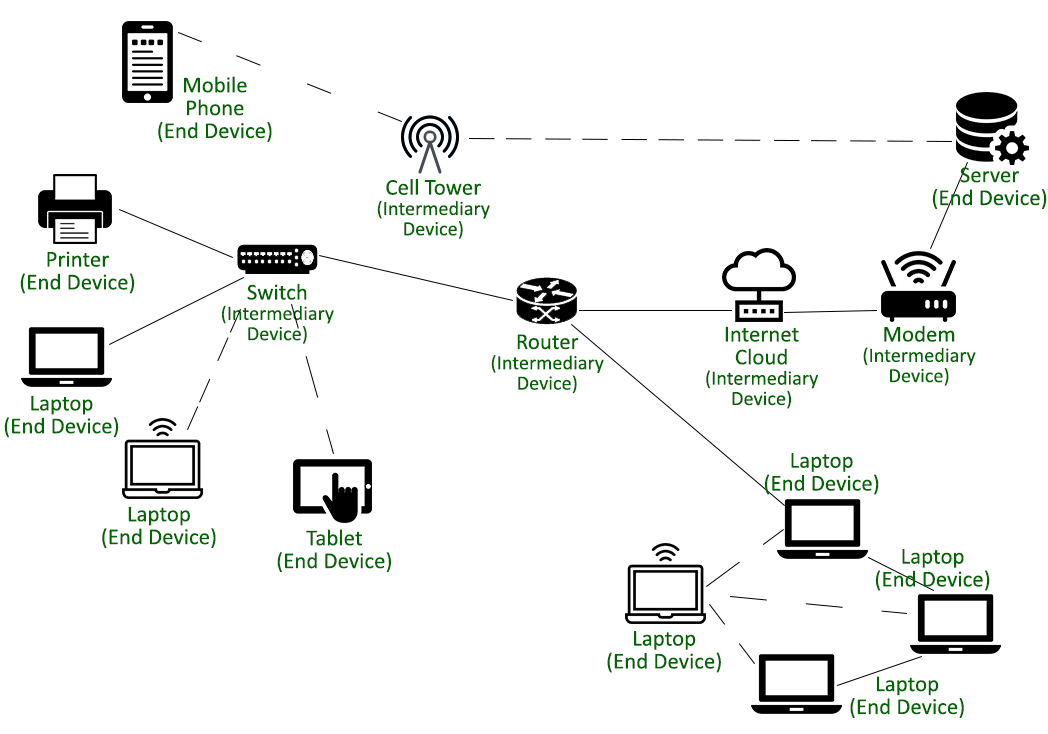
Types Of Node Devices In A Computer Network End And
Hubs vs. Switches vs. Routers
5. The Family Tree
Okay, so we've talked about hubs, but what about switches and routers? They all sound like they do similar things, right? Well, they're all related, but each plays a different role in the network family. Think of them as siblings with different personalities and talents.
A hub, as we know, is the simple one. It broadcasts all data to all connected nodes. A switch is smarter; it learns which devices are connected to each port and only sends data to the intended recipient. This drastically reduces congestion and improves network performance. The switch is basically a much better version of a hub. It only sends message to the relevant members in the orchestra, and not everyone.
A router takes things a step further. It connects different networks together, like your home network to the internet. Routers can also perform more advanced functions like firewall protection and network address translation (NAT). It's the master conductor of the network, managing traffic between different orchestras (networks) and ensuring everything plays in harmony.
In short, hubs broadcast, switches direct, and routers connect. Each has its place, but in most modern networks, switches and routers are the preferred choice for their superior performance and security features.
6. Real-World Scenarios
Imagine you're sending a letter. A hub is like shouting the letter's contents from your front porch in the hope that the intended recipient hears it. A switch is like handing the letter directly to the mail carrier, who delivers it to the correct address. A router is like the postal service, which sorts and routes mail across different cities and countries.
In a small home network, you might have a single router that connects your devices to the internet and also acts as a switch for connecting your devices together. In a larger business network, you might have multiple switches to connect different departments, and a router to connect the entire network to the internet. Each device plays a crucial role in ensuring smooth and efficient communication.
The choice between a hub, switch, or router depends on the complexity and requirements of your network. For simple tasks a hub might work, but for most scenarios, a switch or router is the way to go.
The roles described above are often handled by one device. So you might get confused in what is handling what. Generally a router will handle the switches, or a switch can act as a router and so on. It can be hard to know what does what, and this is usually handled by a professional.

Future-Proofing Your Network
7. Hubs in the Modern Era
So, where do hubs fit into the modern networking landscape? Honestly, theyre becoming increasingly rare. With the price of switches and routers steadily decreasing, theres little reason to choose a hub for most applications. They can sometimes be seen in very specific industrial or scientific applications.
Think about it this way: would you still drive a horse-drawn carriage to work when you could drive a car? A hub is like that carriage; it might get you there eventually, but it's not the most efficient or practical option.
However, understanding the fundamentals of how hubs work is still valuable. It provides a foundation for understanding more complex networking concepts and troubleshooting network issues. It's like learning basic arithmetic before tackling calculus.
Even though hubs are outdated, you may find yourself having to fix one. Older infrastructures can be very expensive to upgrade, and until these are upgraded, they will likely use older technologies like hubs.
8. Embracing Modern Networking Technologies
The future of networking is all about speed, security, and efficiency. Technologies like gigabit Ethernet, Wi-Fi 6, and software-defined networking (SDN) are transforming the way we connect and communicate. Switches and routers are at the forefront of these advancements, enabling faster data transfer rates, improved security features, and more flexible network management.
If you're building a new network or upgrading an existing one, it's best to invest in modern networking equipment. A switch or router will provide a much better user experience and will be more future-proof. It's like investing in a new car with the latest technology; it's more expensive upfront, but it will provide better performance, safety, and features in the long run.
So, while hubs may still have a place in certain niche applications, they're largely a relic of the past. Embrace the future of networking by investing in modern switches and routers that can handle the demands of today's digital world.
The future is on security. Make sure whatever tech you decide to implement is also secure. Hackers will be glad to find out you have outdated techs.
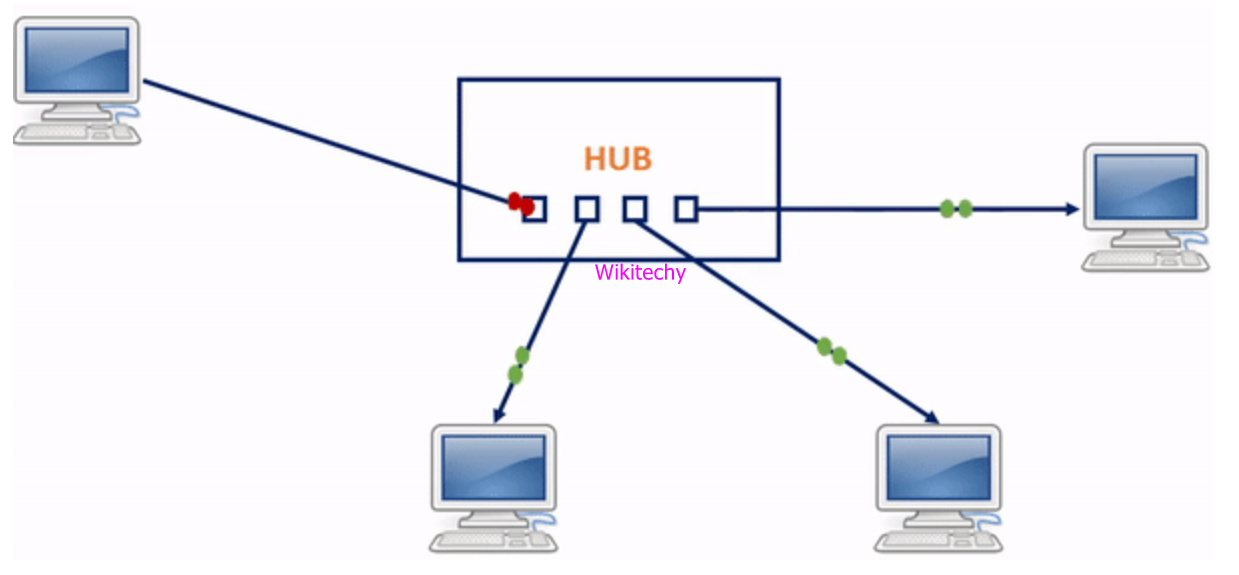
What Is Network Hub ? A The Wikitechy
FAQ
9. Q
A: While technically possible, it's generally not recommended. The hub's broadcast nature will degrade the performance of the switch and the overall network. It's like mixing old and new technologies — it might work, but it won't be optimal. It also might be more prone to issues.
10. Q
A: Yes, hubs pose a security risk because they broadcast all traffic to all connected devices. This makes it easy for someone to eavesdrop on network communications. A switch is much more secure because it only sends data to the intended recipient. It's like having a private conversation versus shouting it in a crowded room. Also, there are modern hacks that are impossible to perform in a network based on switches.
11. Q
A: Absolutely! Upgrading to switches will significantly improve network performance, security, and reliability. It's like trading in an old, unreliable car for a brand-new model with all the latest features. The initial investment will be worth it in the long run.
